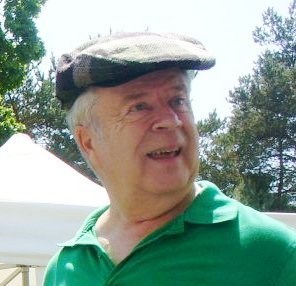Theological controversies about the nature of God rarely make the news but Gretta Vosper is a United Church minister whose avowed atheism has been media fodder in recent years. In her 2008 book, “Christianity: With or Without God”, Gretta denies the existence of God while still affirming the teachings of Jesus. Christianity has traditionally used theistic language – i.e. God as a Divine Person. Gretta objects to all theism. Non-theists or “atheists” like Gretta can believe in the teaching of Jesus without believing that Jesus was divine, or that a divine personage like God exists.
Usually clergy who become atheists decide to leave the Church and choose some sort of helping profession in a secular setting. Vosper is different because she is supported by the Toronto congregation where she serves, but is under review for her fitness for ministry, by the denomination. The issue is construed by some as a clash between individual freedom of thought and the need to conform to the institution’s doctrine re. requiring belief in God in order to become a minister.
The United Church of Canada came about in 1925 as a union of Presbyterians, Methodists, Congregationalists and Union (i.e. community) Church members. There was common agreement about the need to pursue unity at a practical level, without wading too deeply into doctrinal differences. The United Church has tended to de-emphasize official doctrine, allowing for individuals to make up their own mind in an informed way about matters of faith and belief.
The present controversy begs the question of how far one’s freedom of thought can go, and still be a Christian leader. United Church congregation members believe a wide continuum of things and no attempt is made to bring about conformity. But is there a minimum standard of belief to be a United Church minister? One level of the United Church (Toronto Conference) has ruled that there is sufficient question of Gretta’s fitness for ministry, for there to be an official hearing conducted by a committee of General Council (highest level of the United Church). The hearing is to happen this fall.
My sense is that a decision to affirm or to terminate Gretta’s ministry in the United Church will leave people unhappy. Some of that relates to the fact that people have quite different expectations about what is the role of a minister. Spiritually speaking, clergy are different from individual believers because they are accountable to faith communities (through ordination and church procedures) in a way that individuals are not. Just how accountable and just how much diversity of thought is allowable while exercising that role, is the debate.
While I agree with many of Gretta’s insights, I’m not sure I want to throw the baby out with the bath water. The word God can mean different things to different people in different contexts. Some believers have used God to justify ungodly things – slaughter of enemies, defence of slavery, intolerance of other religions, subjugation of women, etc. But the notion of God has also motivated people to great acts of compassion and humility.
Sometimes God is like a loving person and sometimes God might be experienced more as Higher Consciousness, Spiritual Energy, Mystical Presence. All words for what is sacred are limited and approximate. With that in mind, I think people can attend Gretta’s congregation and be nurtured by her insights, as long as she is articulate about her views but humble enough to allow a diversity of (even theistic) views by others in that faith community.
 Larry Scott is a retired United Church minister living in Victoria.
Larry Scott is a retired United Church minister living in Victoria.
You can read more articles from our interfaith blog, Spiritually Speaking,


